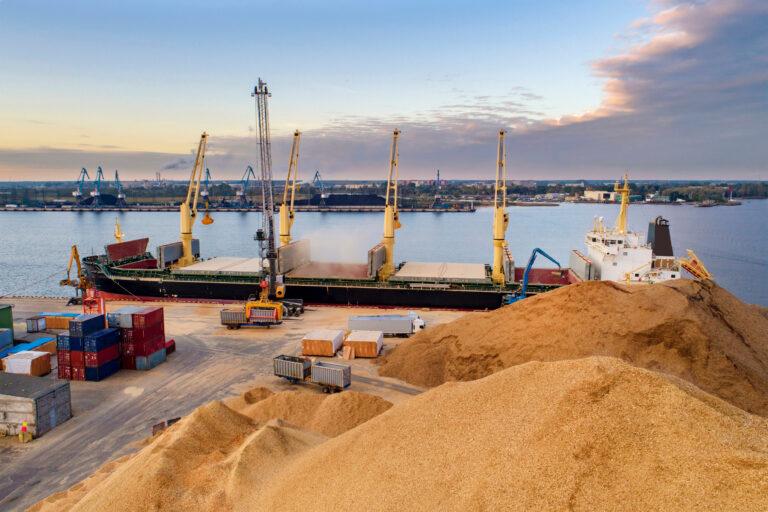Ukraine and Russia are among the world's most important arable crop producers and exporters, especially of wheat, barley, maize and sunflower seeds.
The agricultural product most affected by the war is wheat. Russia and Ukraine are among the largest wheat exporters, accounting for 20% and 10% of global exports, respectively. Most of the Ukrainian wheat exported to the the Middle East and North Africa region, where wheat is the main staple food. The war is not only making harvesting difficult, but the destruction of transport infrastructure is making transport impossible.
The two countries are also global players in maize and sunflower production. Ukraine and Russia account for 17 percent of global maize exports. A disruption in sunflower exports could further increase the price of edible oil or lead to shortages. Food business operators may substitute the missing sunflower oil with other products such as rapeseed oil.
The war also has an impact on the fertiliser market. Russian and Ukrainian exports in this area were also significant because of the fertiliser feedstock nitrogen extracted from natural gas. But the two countries also play an important role in the export of another essential ingredient, potassium, along with Belarus, which has also been hit by sanctions because of its alliance with Russia.
The shortfall caused by the loss of Ukrainian and Russian resources can be replaced, but only over a period of years, so the countries affected can only partially supply the population from their own resources. The cessation of Ukrainian and Russian exports will lead to higher prices for all the products concerned.
According to FAO if the conflict results in a sudden and prolonged reduction in food exports by Ukraine and the Russian Federation, the global number of undernourished people could increase by 8 to 13 million people in 2022/23, with the most pronounced increases taking place in Asia-Pacific, followed by sub-Saharan Africa, and the Near East and North Africa.
On July 22, 2022 Ukraine and Russia signed an agreement - brokered by Turkey and the United Nations - on the resumption of Ukrainian grain exports via the Black Sea. The first grain shipments left the Ukranian ports in early August. These shipments play a crucial role in alleviating the food crisis, which is mainly affecting Africa and the Middle East, and in stabilising world wheat and maize prices. At the same time, there is a risk that the millions of tonnes of grain accumulated in Ukrainian port storage facilities will not be shipped in time for this year's harvest and storage.
The war may also have other impacts, mainly at regional level, for example on animal health. The loss of supply chains, veterinary services and surveillance will have an impact on the early detection, prevention and control of various animal and zoonotic diseases. The risk of disease transmission in Ukraine and neighbouring countries is high and therefore there is a need for the countries concerned to implement coordinated and targeted risk-based control measures.
The impacts described are based on the current situation and only take into account the war impacts for the current and the next economic years. If the war continues beyond 2022, it could exacerbate the world food crisis and have a longer-term impact on food prices.
Update
As of July 2023, nearly 33 million tonnes of agricultural goods were shipped from Ukraine thanks to the Black Sea Grain Initiative. 65% of the wheat transported via the initiative reached developing countries, including through the humanitarian operations of the United Nations' World Food Programme (WFP). Ukraine was WFP’s biggest supplier of wheat in 2022, supplying more than half of the programme's global wheat grain procurement.
In July 2023, Russia decided to terminate the Black Sea Grain Initiative, again threatening the food security of some countries.
Further information on the Ukrainian grain exports is available, for example, on this website, where the share of exported goods by commodity and destination can be tracked, and the impact of the war on food prices is also discussed.

